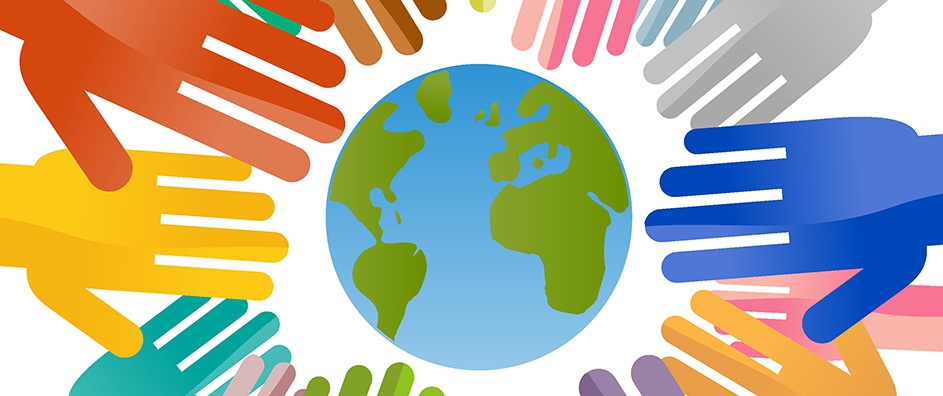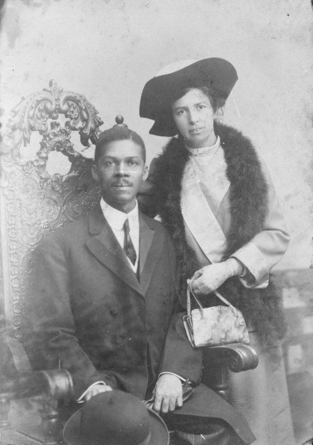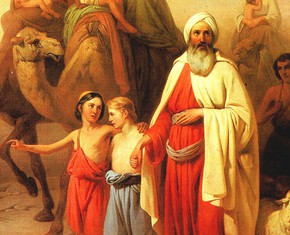The views expressed in our content reflect individual perspectives and do not represent the authoritative views of the Baha'i Faith.
Abdu’l-Baha’s 1913 speech in Paris came soon after his eight-month sojourn in a segregated, racist Jim Crow America. A century ago African Americans possessed few human rights, and most if not all suffered enormously as a result of widespread, endemic prejudice, racism and racially-based violence.
Abdu’l-Baha spoke out strongly against such racism and prejudice—and he went beyond just talking about the problem by repeatedly acting to stop it. Calling such prejudices the destroyers of human society, Abdu’l-Baha not only preached but passionately practiced the Baha’i principle of the equality of all people.
He actively and openly campaigned for an immediate end to America’s racist practices. He advocated intermarriage between the races, then illegal under miscegenation laws in almost every state. He encouraged interracial Baha’i couples to
marry, and on September 27, 1912, praised and heralded the first Baha’i couple to do so—Louisa Mathew and the well-known black Washington, D.C. attorney Louis Gregory. He openly urged Baha’is and others to break the “color line,” the forced and legal separation of the black and white races. In many public and private meetings, he happily ignored segregationist laws and integrated those meetings by inviting people of color and seating them in positions of honor and respect. Maybe most importantly, in all his addresses, talks and in countless media interviews, he stressed that the Baha’i teachings require the elimination of prejudices of every kind, whether between religions, nationalities or racial groups.
In his speech in Paris, responding to an American cleric who claimed that the Baha’i Faith brought nothing new to the world, Abdu’l-Baha boldly challenged his assertion with this powerful rejoinder:
He [Baha’u’llah] heralds the hour of unity which has dawned on all mankind. All are the children of one Father; all the inheritors of that future peace on earth. He admonishes men to banish prejudice; religious, patriotic, racial preconceptions must disappear, for they are the destroyers of human society. Where is this written? In which part of the Bible, Old or New Testament? – Abdu’l-Baha, Divine Philosophy, p. 82.
This primary Baha’i emphasis on the elimination of prejudice, as Abdu’l-Baha outlined it in his trip to the West a century ago, sparked the rhetorical questions he asked his audience in Paris. During that time, even though Christianity was the predominant religious affiliation in America, Abdu’l-Baha encountered profound racism there. His pointed question about prejudices and preconceptions as “the destroyers of human society” obliquely alluded to the general racism of the Christian populace in the West; but they also directly answered the “nothing new” prejudice the Christian minister had alleged about the Baha’i teachings.
In the same series of talks he gave in Paris, Abdu’l-Baha expounded on the theme of the abolition of prejudice even further:
Beware of prejudice; light is good in whatsoever lamp it is burning. A rose is beautiful in whatsoever garden it may bloom. A star has the same radiance if it shines from the east or the west.
All the prophets of God have come to unite the children of men and not to disperse them; to put in action the law of love and not enmity.
We must banish prejudice. Religious, patriotic, racial prejudices must disappear, for they are the destroyers of human society. We must become the cause of the unity of the human race. – Abdu’l-Baha, Divine Philosophy, p. 24.
Here he tacitly recognizes that every former Faith brought the same message of love; while emphasizing that no former Faith ever taught “the unity of the human race.”

















Comments
Sign in or create an account
Continue with Googleor